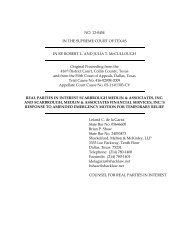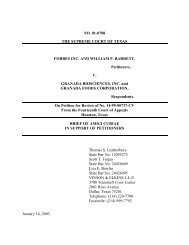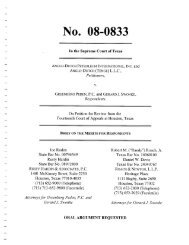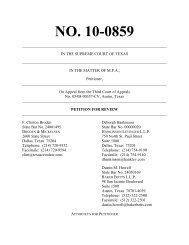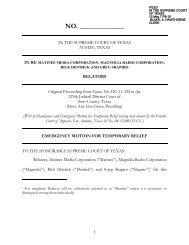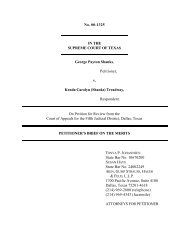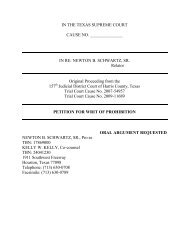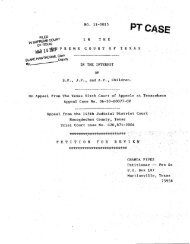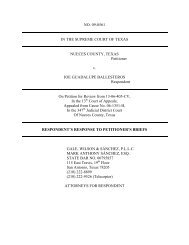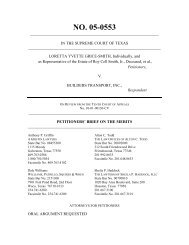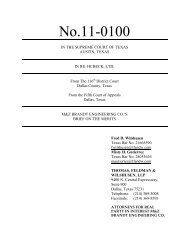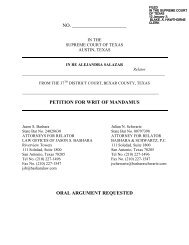DAIMLERCHRYSLER CORPORATION, Petitioner - Supreme Court ...
DAIMLERCHRYSLER CORPORATION, Petitioner - Supreme Court ...
DAIMLERCHRYSLER CORPORATION, Petitioner - Supreme Court ...
You also want an ePaper? Increase the reach of your titles
YUMPU automatically turns print PDFs into web optimized ePapers that Google loves.
suffer tread separation” defect in Firestone tires, and reiterated the fundamental principle<br />
that manifest injury is required for recovery under either a contract-based or tort-based<br />
theory. See Bridgestone/Firestone, 288 F.3d at 1017. Plaintiffs, who, like plaintiffs here,<br />
had not alleged any malfunction or other manifestation of a defect in their vehicles, had<br />
tried to avoid this rule by “describ[ing] the[ir] injury as financial rather than physical and<br />
seek[ing] to move the suit out of the tort domain and into that of. . . consumer fraud (on<br />
the theory that selling products with undisclosed attributes, and thus worth less than<br />
represented, is fraudulent).” Id. The court recognized the majority position on the matter<br />
and the public policy reasons against allowing such cases, see infra, and noted that, “[als<br />
a result, most states would not entertain the sort of theory that plaintiffs press.” Id.<br />
Moreover, plaintiffs cannot dodge the fatal problem with their claims by alleging<br />
that any individual plaintiff was injured because he or she ostensibly would have paid a<br />
lower price if plaintiff knew of the alleged defects or because the value of the product has<br />
“diminished” in an abstract sense (even if the plaintiff has not sold the product and<br />
therefore cannot demonstrate any concrete loss). Znman, 121 S.W.3d at 876. <strong>Court</strong>s have<br />
refused to permit such attempts to circumvent the injury requirement:<br />
The point of the cases cited [I is that unless there is actually a<br />
failure in product performance, there is no basis at all for<br />
claiming that the plaintiff has been damaged in any way.<br />
Mere suspicion of a lost bargain . . . will not support an<br />
award of damages.<br />
Jarman v. United Indus. Corp., 98 F. Supp. 2d 757, 768 (S.D. Miss. 2000) (emphasis<br />
added) (rejecting argument of entitlement to recover the loss of the benefit of purchase<br />
price for an allegedly defective pesticide in action involving, inter din, breach of<br />
19



